Child and Adolescent Mental Health
Help raise awareness about the importance of child and adolescent mental health by sharing informational materials based on the latest research. Share science. Share hope. https://go.nih.gov/diK806G #shareNIMH

An official website of the United States government
Here’s how you know
Official websites use .gov
A .gov website belongs to an official government organization in the United States.
Secure .gov websites use HTTPS
A lock ( ) or https:// means you’ve safely connected to the .gov website. Share sensitive information only on official, secure websites.
Due to current HHS and NIH restructuring, some content on nimh.nih.gov is not being updated regularly. Please refer to clinicaltrials.gov and nih.gov for up-to-date information on NIH research.
Transforming the understanding
and treatment of mental illnesses.
Use these resources to raise awareness about the importance of child and adolescent mental health.

Mental health is an important part of overall health for children and adolescents. Many adults with mental disorders had symptoms that were not recognized or addressed in childhood or adolescence.
Help raise awareness about the importance of children’s mental health and early diagnosis and treatment by sharing information and materials based on the latest research.
Download and share these messages to help spread the word about child and adolescent mental health. You can copy and paste the text and graphic into a tweet, email, or post. We encourage you to use the hashtag #shareNIMH in your social media posts to connect with people and organizations with similar goals. For more ideas on how to use these resources, visit our help page.
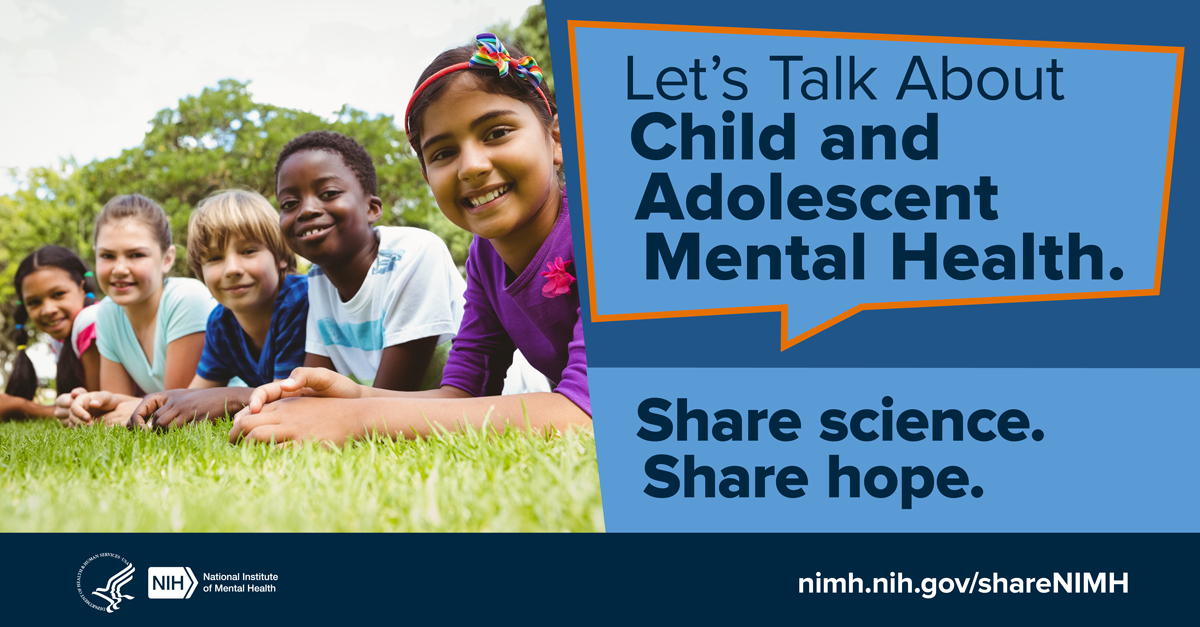
Help raise awareness about the importance of child and adolescent mental health by sharing informational materials based on the latest research. Share science. Share hope. https://go.nih.gov/diK806G #shareNIMH
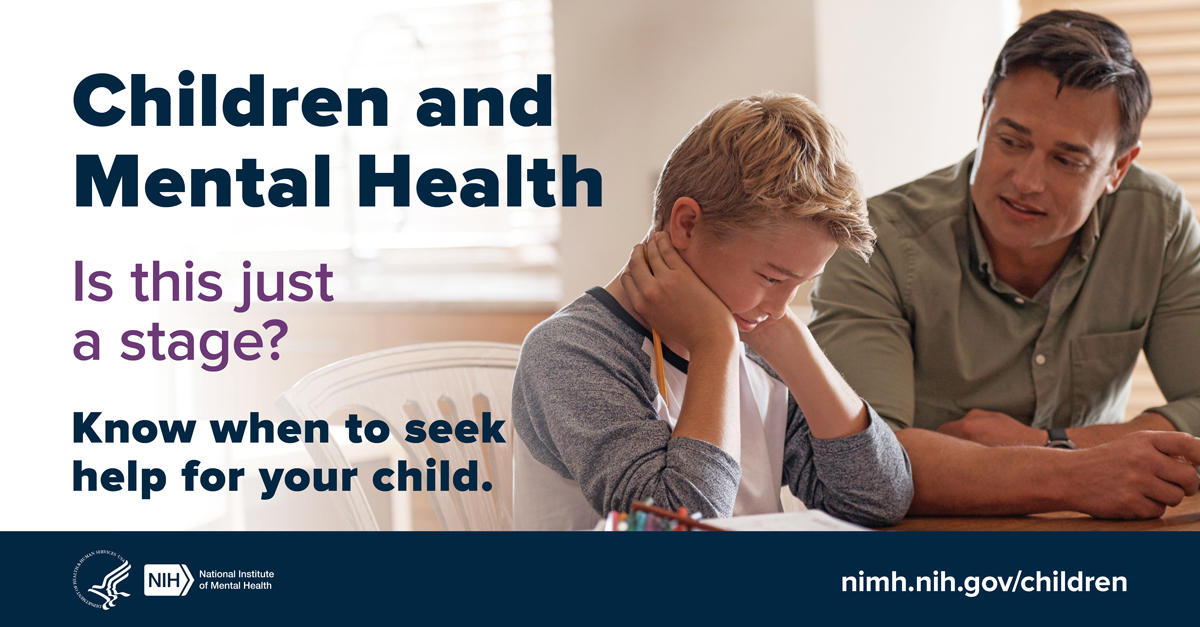
It can be tough to tell if troubling behavior in a child or teen is just part of growing up or a problem that should be discussed with a health care provider. Learn more about warning signs: https://go.nih.gov/VDeJ75X #shareNIMH
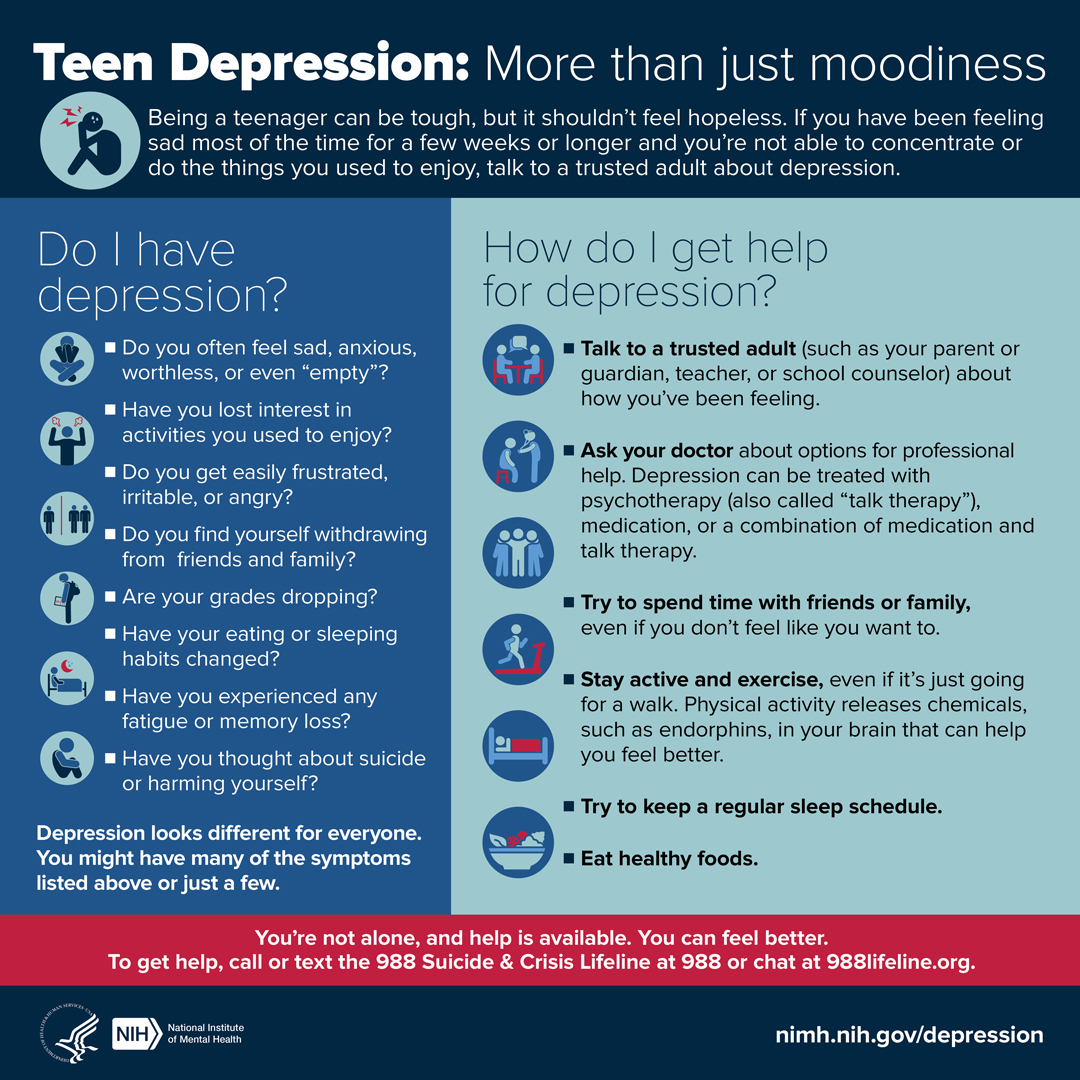
Being a teenager can be tough, but it shouldn’t feel hopeless. Check your symptoms, and find out what you can do if you think you might have depression. https://go.nih.gov/dGGEwYi #shareNIMH
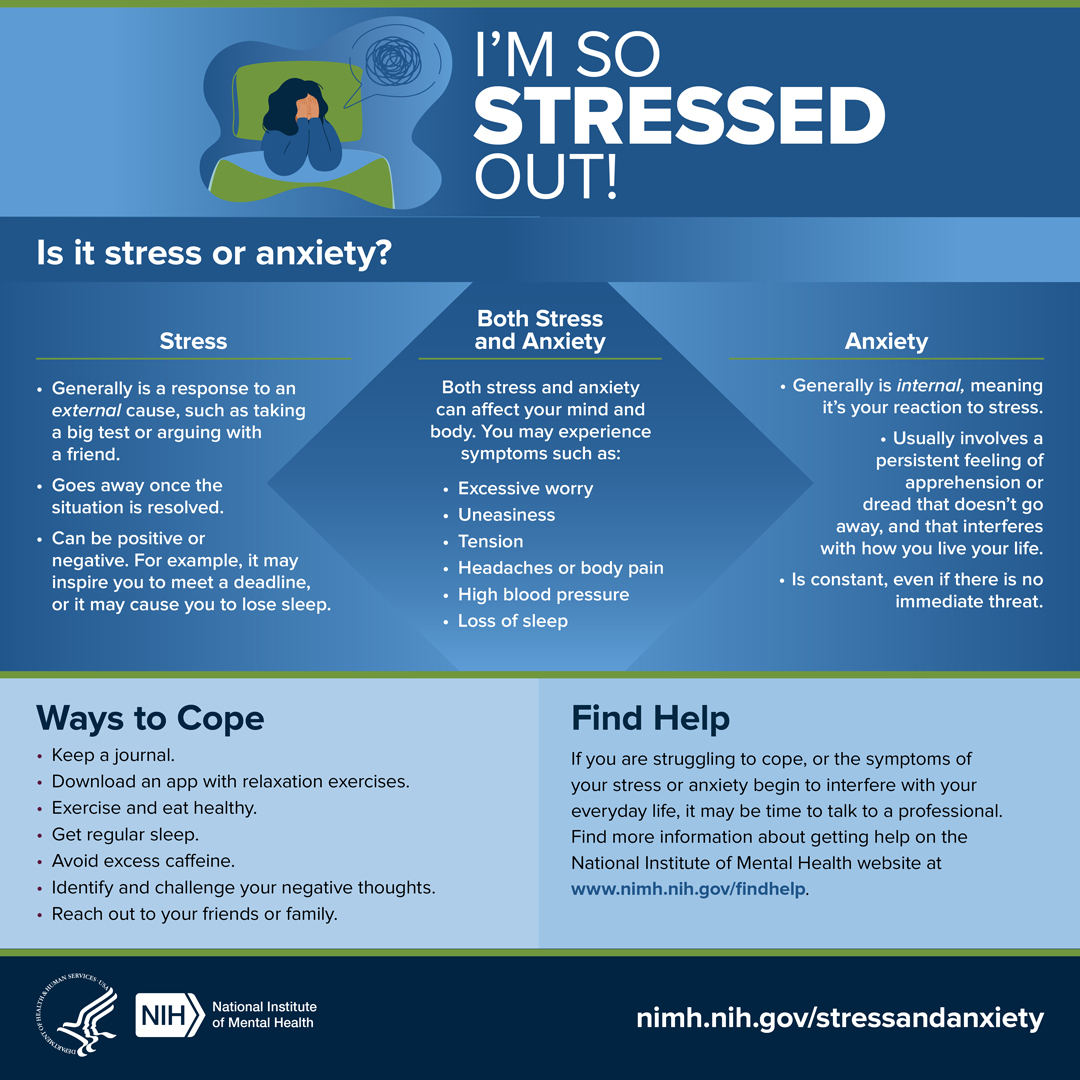
Life can be stressful. If you are struggling to cope, or the symptoms of your stress or anxiety won’t go away, it could affect your health. Learn more at https://go.nih.gov/HcjwFWe . #shareNIMH
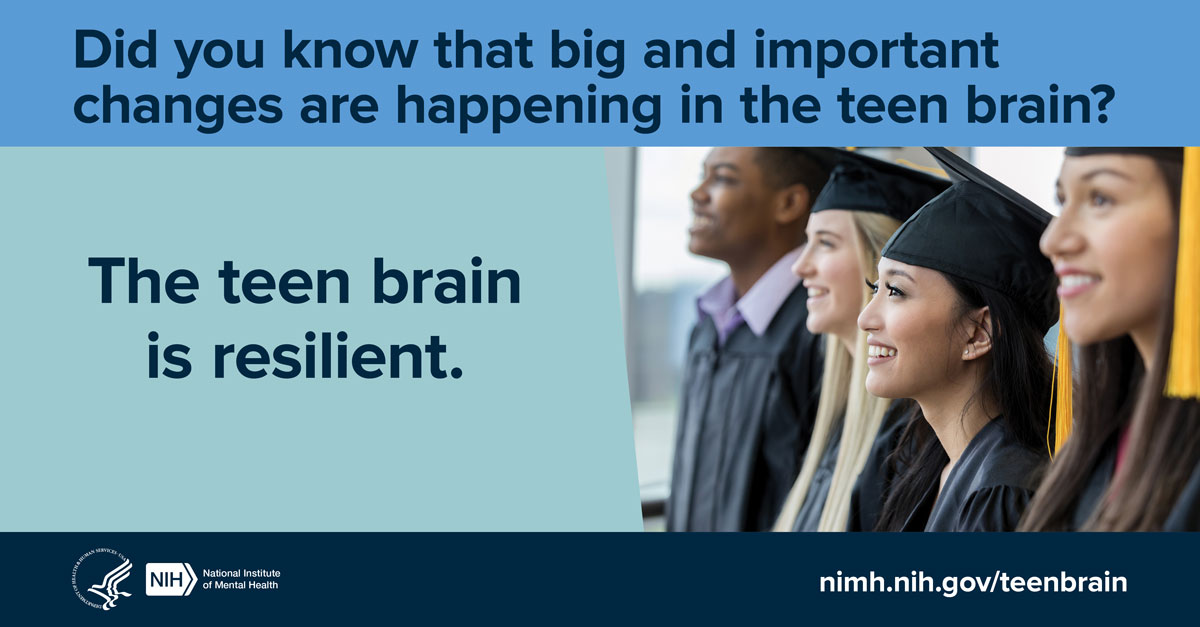
Did you know that big and important changes are happening in the brain during adolescence? Here are 7 things you should know about the teen brain: https://go.nih.gov/cX8gB6u #shareNIMH
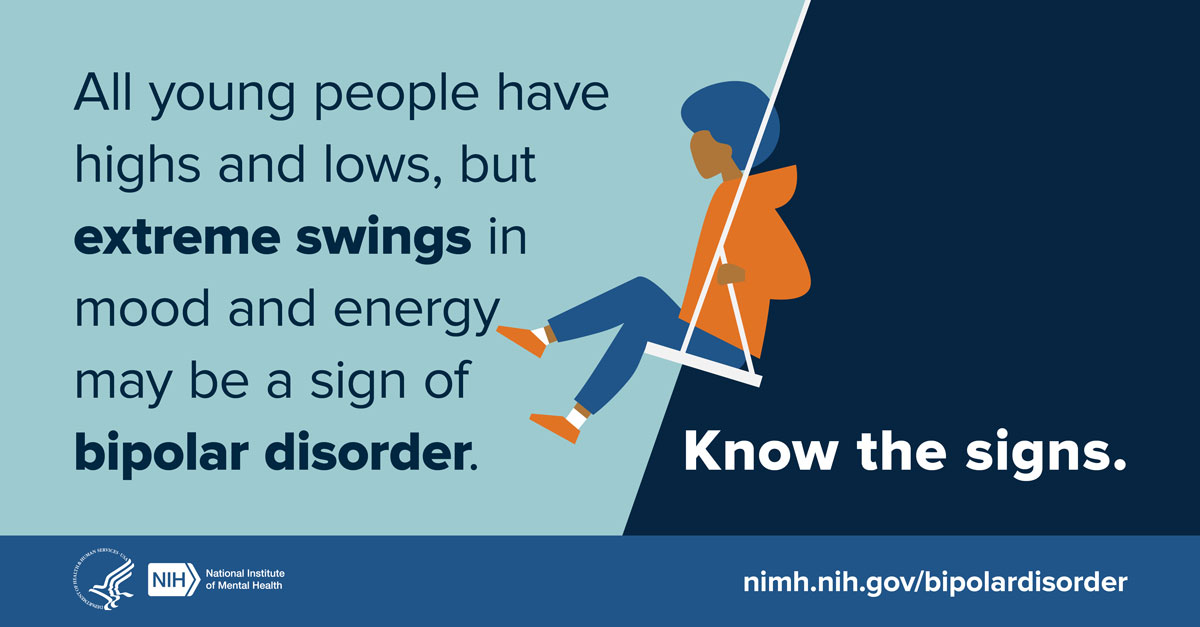
Bipolar disorder is not the same as the typical ups and downs every kid goes through, but with help, children and teens can manage their symptoms and lead successful lives. Learn more at https://go.nih.gov/UzIGOVj #shareNIMH
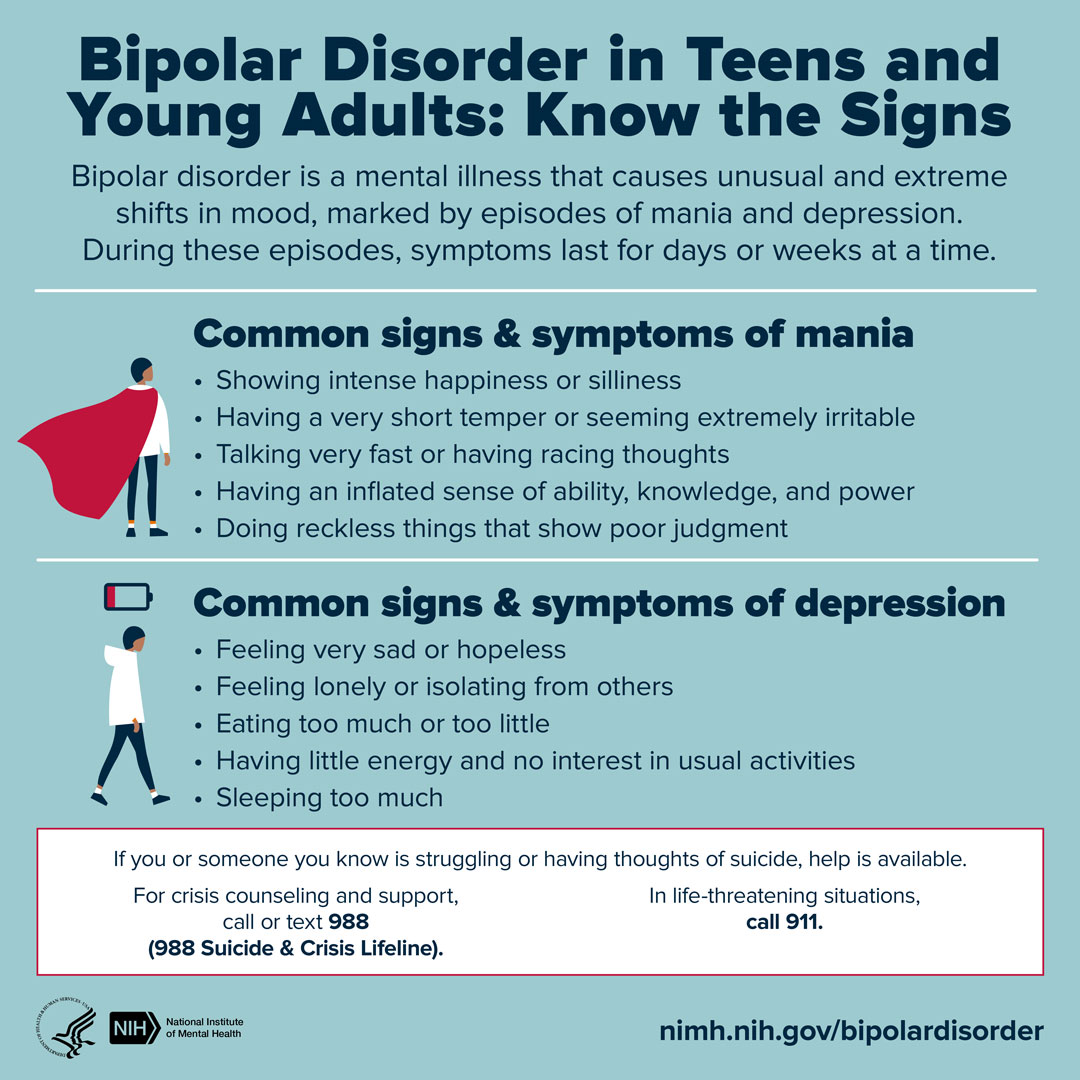
Bipolar disorder is a serious mental disorder that causes unusual shifts in mood, marked by episodes of mania and depression. Know the signs and symptoms of bipolar disorder in teens and young adults: https://go.nih.gov/uU4NAlG #shareNIMH
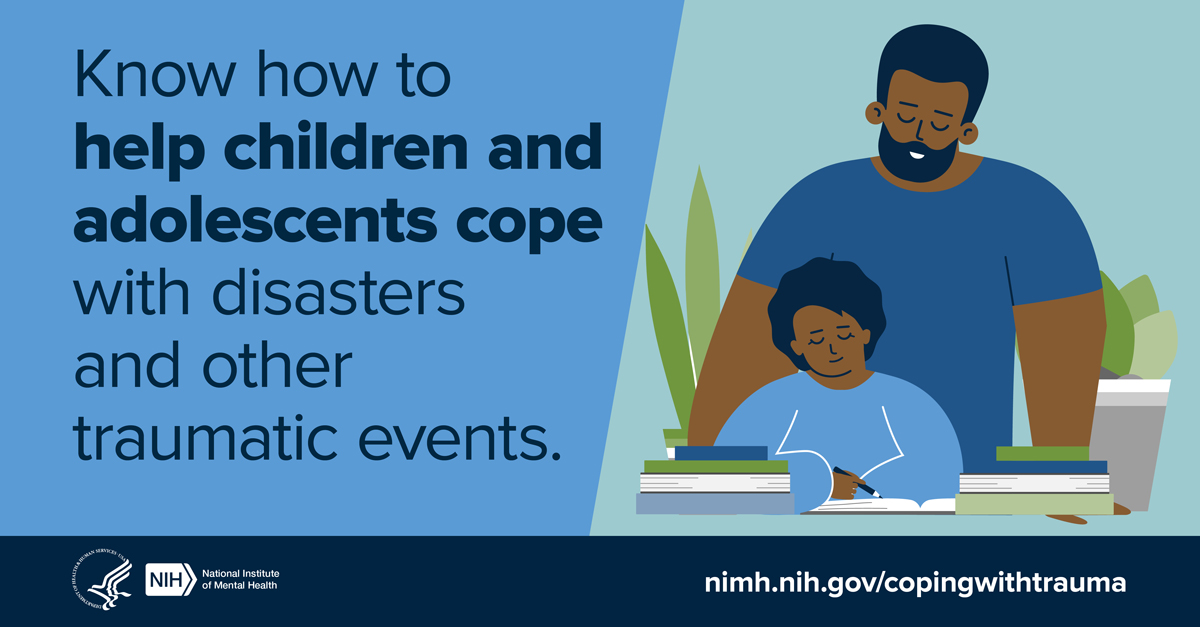
Learn what caregivers and family members can do to help children and adolescents cope with traumatic events. https://go.nih.gov/FhVDaFG #shareNIMH

Do you need help with your mental health? If you don't know where to start, this infographic may help guide you. https://go.nih.gov/1VtK7eA #shareNIMH
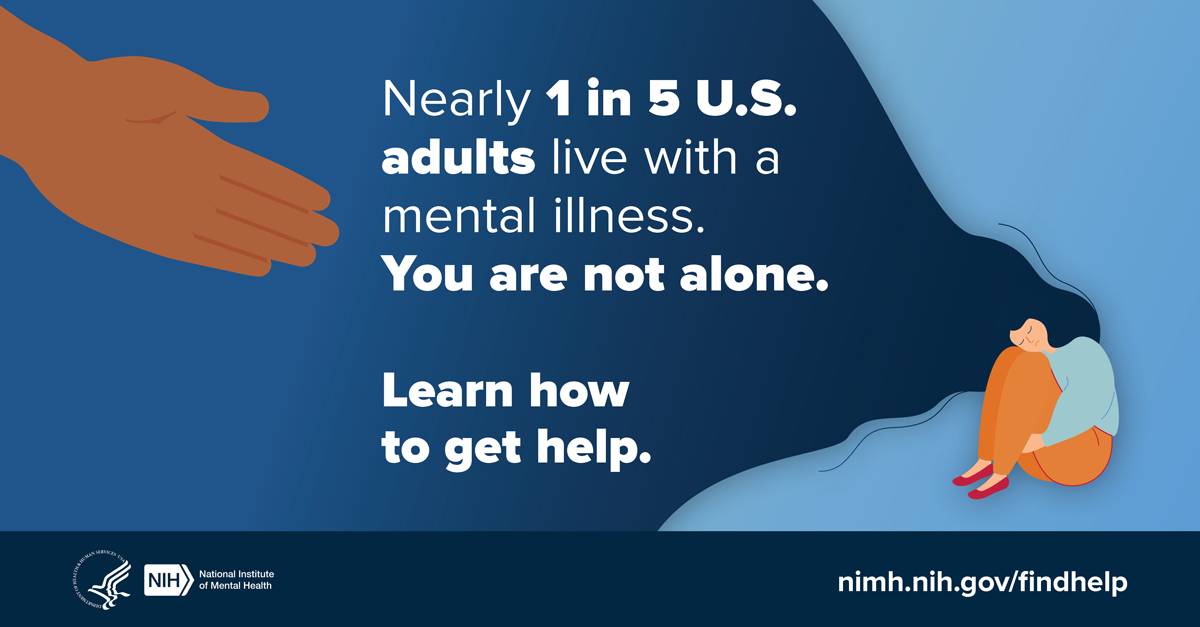
If you or someone you know has a mental illness, is struggling emotionally, or has concerns about their mental health, use these resources to find help for yourself, a friend, or a family member: https://go.nih.gov/Fx6cHCZ . #shareNIMH
Click the “Copy Link” link to post these videos on social media, or embed them on your website.
Childhood Irritability: Learn about symptoms of irritability, why it's important to study irritability, NIMH-supported research in this area, and new treatments for severe irritability in youth.
Get to Know Your Brain: Your brain is an incredible and complex organ! It helps you think, learn, create, and feel emotions, and it controls every blink, breath, and heartbeat. Learn more about the parts of the brain and what each area helps control.
Mental Health Minute: Stress and Anxiety in Adolescents: Got 60 seconds? Take a mental health minute to learn about stress and anxiety in adolescents.
Guided Visualization: Dealing with Stress: Learn how the brain handles stress and practice a guided visualization activity.
Diagnosis and Treatment in Children and Adolescents: Learn about research related to stress on children and adolescent brains, and diagnosis and treatments for severe irritability disorder.
Download and read these educational tools to help teach kids about mental health and the brain. Resources are available in English and Spanish.
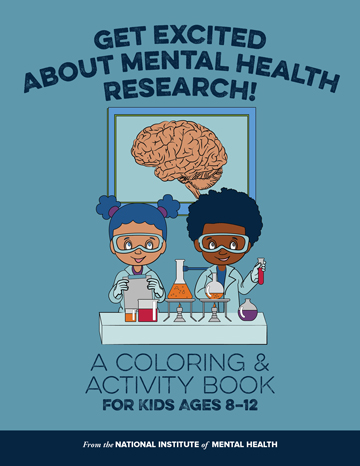
This free coloring and activity book introduces kids to the exciting world of mental health research.
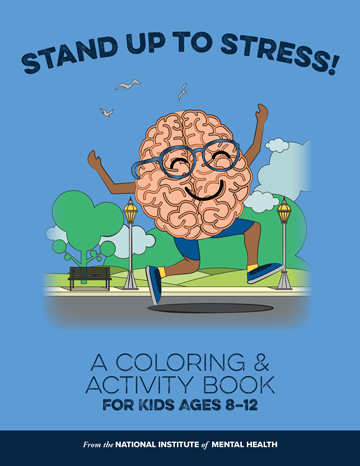
This free coloring and activity book teaches children about stress and anxiety and offers tips for coping in a healthy way.
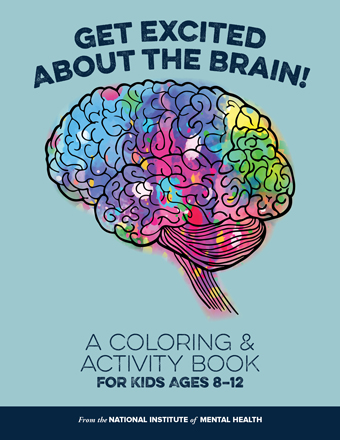
This free coloring and activity book for children ages 8-12 features exciting facts about the human brain and mental health.
Last Reviewed: April 2024